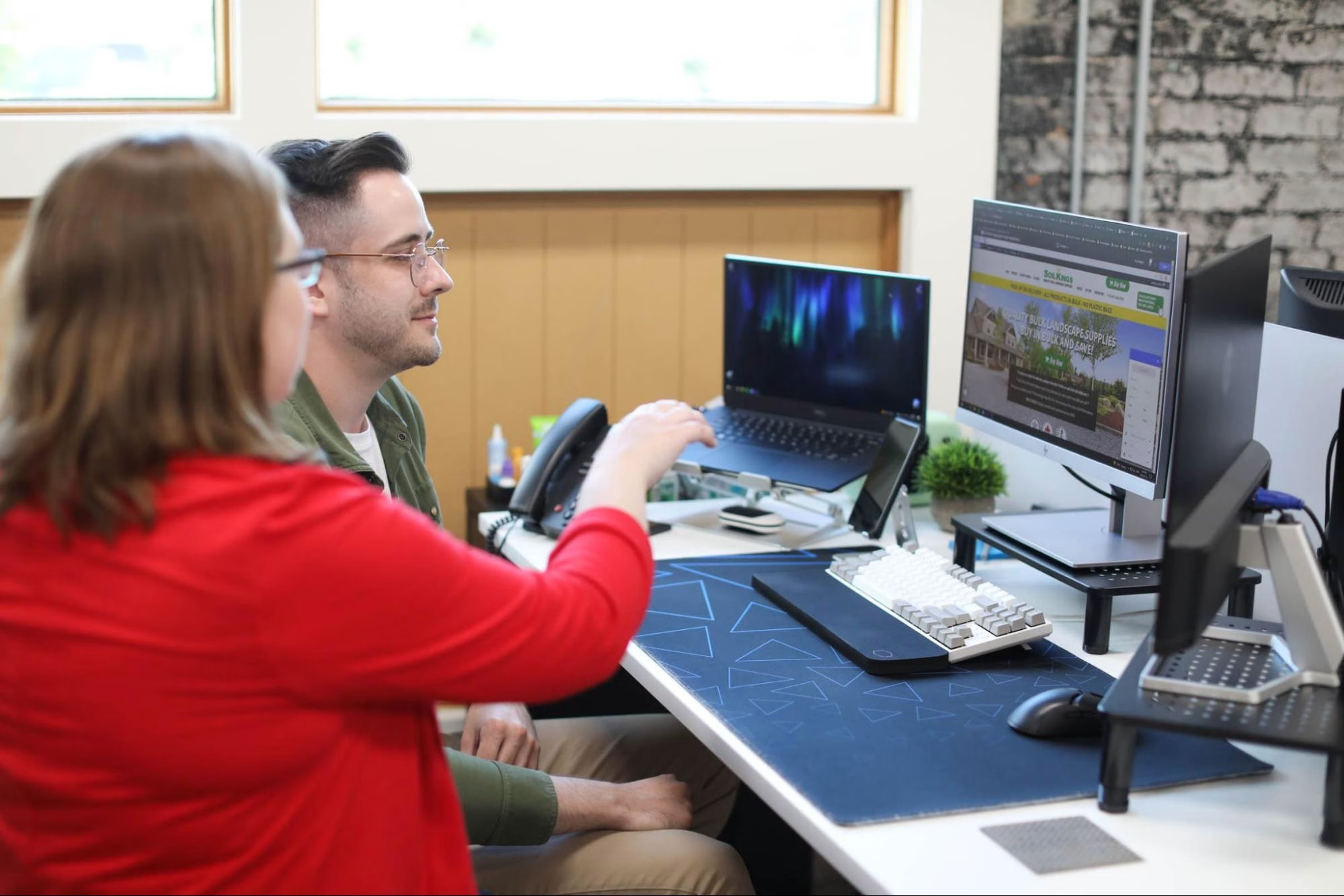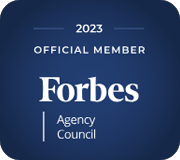Strong brand awareness helps your company stand out and boosts business success. Effectively building this awareness is a difficult task and takes time. A one-size-fits-all approach does not work. Each business is different. So too should be their brand awareness strategy. It’s important to interact with your target audience in the right way at the right time. You must strategically approach your audience, engage them with the right tools and create enough returning customers to build a recognizable, consistent brand. The following are some practical insights into brand awareness and how to effectively increase it.
What is brand awareness?
Though brand awareness is an abstract concept and can’t be measured in neat and tidy numbers, it’s critical for marketing goals and overall business success. Brand awareness represents how familiar your target audience is with your brand, and how well they recognize it. It enables you to stay top-of-mind for current and/or potential customers. This familiarity kicks off the customer journey through the brand funnel (awareness, consideration, preference, action, loyalty). It increases your brand’s visibility and memorability in ways other marketing cannot.
Why is brand awareness important?
- Creates trust: The more familiar consumers are with your brand, the more they’ll trust you. Trust is everything! 49% of consumers start purchasing and/or purchase more from a company because of trust. 67% of consumers agree that a good reputation may get them to try a product, but unless they come to trust the company behind the product, they’ll soon stop buying. Become a well-known and reputable brand and you’ll gain the trust of customers/prospective customers. Then bridge the gap between trust and loyalty.
- Creates association: Brand awareness leads to the association of actions and products with branded terms (Xeroxing a copy, Googling a question, putting a Band-Aid on a cut, grabbing a Starbucks). The result is free marketing!
- Fulfills a future need: Strong brand awareness has long-term effects. By increasing brand awareness, you put your business on the radar for future purchasing decisions.
- Builds brand equity: Brand equity refers to a brand’s value. This is determined by consumer experience and overall perception of your brand. Higher perceived value allows for higher prices, the ability to expand product/service lines and greater social impact. Boosting brand awareness boosts brand equity.
- Expands your business: If your brand’s recognition/respectability is high, it enables you to expand into new markets and introduce new products/services.
How to build brand awareness :
There are a number of possible ways to build brand awareness but remember that each brand’s journey is unique.
- Be personal: Brand personality is key to driving customer loyalty and increasing the value of your brand name. To make an impression on your audience, you need to define yourself as more than a company that sells products/services. Let present and potential customers know your goals, values, passions and what your company stands for. Express your brand personality consistently, taking time to align all aspects of your brand with your chosen core personality traits.
- Be authentic: Brand authenticity is the extent to which a brand is considered unique, legitimate and truthful to its claims. Authenticity creates a foundation for honest communication and helps current/prospective customers build emotional connections to your brand. Consumers want to spend their money on brands that care about the same issues as them and can relate to their feelings. Share your brand’s purpose/mission. Take the time to understand your customer’s needs/wants. Express emotion and empathy as a brand. Show a sense of humour and use an approachable voice tone. Define your brand, articulate your values and connect with your target audience.
- Socialize: All humans benefit from social contact. It’s how we stay connected, learn new things and become known to others. This is also true of your brand. To raise awareness of your brand, you need to be social; post on social media, comment on posts, retweet/share content and ask questions. Use your authentic brand voice. Post new content, create social media graphics, interact with other brands and engage your audience. 52% of your brand’s reputation is determined by how social you are online.
- Tell a story: Storytelling is powerful marketing. A brand’s narrative humanizes it and gives it depth. Talk about your founder, how you created your first product idea and/or how you brought your product/service to market. Understand what motivates your audience to purchase and let this inform a story that resonates with your audience.
- Make sharing easy: Make it easy for your audience to share your content (blog posts, sponsored content, videos, social media posts, and product pages). This allows you to interact with your audience in more ways than asking for money. Let this word-of-mouth style of marketing work for you.
- Guest blog: Guest blogging is a content marketing tactic that involves writing and publishing one or more articles for other websites. This allows you to increase brand awareness with minimal effort. Utilize the traffic that’s already found on another website. Write in your brand voice. Be personal.
- Try co-marketing: Co-marketing is the process of growing two or more businesses at the same time by working together to share expertise with and offer value for their audiences. Both companies promote a piece of content or product, and share the results of that promotion. It’s an excellent way to build brand awareness. Create a shared offer or host an Instagram live together. You can double or triple your reach.
- Create a face/hire a mascot: Consider hiring an actor/spokesperson/influencer to represent your company, allowing you to humanize your brand and provide a friendly, knowledgeable presence. Animated mascots are a cost-efficient and effective way to give a brand a face.
- Choose an image: Use the services of a graphic designer to create a symbol that is uniquely “you.” Incorporate that symbol into your logo, packaging and design.
- Create a slogan: A short motto/slogan is a cornerstone of a strong brand awareness strategy. It’s a simple way to increase brand awareness. Use it to explain how you’re different, what you offer and why consumers should choose you.
- Offer freemium: Freemium is a business model in which a company offers basic or limited features to users at no cost and then charges a premium for supplemental or advanced features. This allows customers to get a taste of your product/service before making a purchase. Brand all free features/products for advertising purposes.
- Sponsor events: Festivals, concerts, fairs and exhibitions require brand sponsorships to operate. Sponsoring these affairs puts your brand in front of hundreds/thousands of people, offering advertisement and exposure. Make sure the event matches your brand personality, interests and passions.
- Produce a podcast: Podcasts provide a way to connect to your audience authentically. They give you the opportunity to educate, inform, entertain and/or advise. Once you have an audience, a podcast has a huge influence on your brand’s authority and recognition.
- Use referral programs: Ask existing customers to reach out to find new consumers. Offer an incentive (discount, premium service, free product, etc.). Satisfied customers will happily spread the word about your business.
How do you measure brand awareness?
There are quantitative and qualitative methods for measuring brand awareness. Quantitative methods use numerical data to determine growth. Qualitative methods measure subjective value. Try these four methods:
- Direct traffic is a quantitative method that measures how many people type your URL and visit your website. When consumers go directly to your site, it indicates an awareness of your brand, helping you understand the effectiveness of your brand awareness campaign.
- Site traffic numbers are quantitative and reflect overall site traffic, indicating general interest in your content and brand.
- Social engagement: Refers to the number of followers, likes, retweets and comments. It’s a reflection of how aware people are of your brand and how much they socialize with it. It lets you know if your content is having an impact. Take note of increases in follower count and how specific posts perform.
- Searching Google is a qualitative method. Googling your brand lets you see what people think of your company by bringing up news articles, forum discussions and social media posts. These provide valuable information.
Brand awareness is a powerful tool that has a major impact on marketing efforts, consumer perception and revenue. Establish and build awareness for your brand and you’ll find yourself with a loyal audience that recognizes your brand among competitors, chooses your products again and again and recommends them to their friends and family.
Interested in building brand awareness for your business? Need help with your digital marketing strategy? Call CAYK at (403) 456-0072 or email [email protected]. Allow us to be your very own marketing department! Connect with our tightly-knit team of knowledgeable digital-first consultants, each eager to help your business grow. Contact Us today.
How useful was this post?
Click on a star to rate it!
Average rating 5 / 5. Vote count: 1
No votes so far! Be the first to rate this post.

















